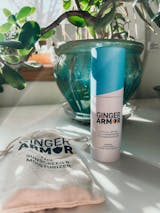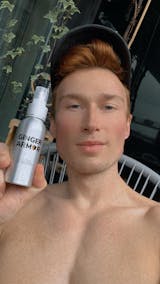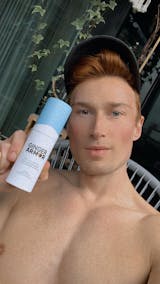UV index
- 'The UV index' is a better indicator than the temperature or visible sunlight for choosing if you need to apply sunscreen or not. Even when it's overcast, foggy or cloudy on the slopes, at the beach, or on the water you can still get sunburns and/or UVA damage that will not show up as a visible burn like UVB rays do, but UVA rays can actually cause more wrinkles and risk of cancer than visible UVB burns.
- Harmful rays are still reaching your skin even when the sun isn’t visible. Some studies suggest that clouds may actually intensify UV rays in some cases. This is known as the ‘broken cloud effect’
- The snow, sand, or water below your feet is a giant mirror reflecting the sun rays, so you’re getting hit by UVA and UVB rays on their way down and on their way back up from the ground--Apply underneath your nose and any area of your neck or face that’s exposed
- Lips and eye area are some of the most sensitive skin and most commonly under protected parts of the body. Ginger Armor doesn't sting when it gets in your eye so get it as close as you can to your eye.
- When skiing and snowboarding, you are typically at a higher altitude where the sun's impact will be even stronger than it already is.
For more information check these links out:
https://www.cnet.com/health/how-to-measure-uv-exposure-and-why-you-should-care/
https://www.drgurgen.com/are-the-suns-uv-rays-really-stronger-on-cloudy-days-fact-or-myth/
https://medicalxpress.com/news/2019-02-sunscreen-snowboarding.html










